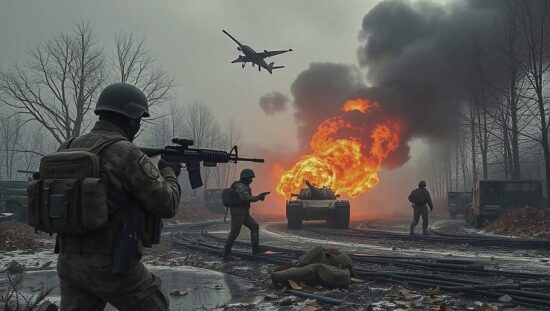Nico Lange, a security policy expert, warns against a distorted perception of the Ukraine war in Germany. According to Lange, the Russian President, Vladimir Putin, has not yet agreed to a ceasefire and wants to negotiate based on his “well-known maximum demands.” This, says Lange, speaks volumes: “Putin believes he can negotiate and continue fighting simultaneously.”
Lange warns of targeted disinformation and influence from Russia on the German debate: “Our debate is not only poisoned by lies and propaganda, but it is also influenced from the outside.” He emphasizes the importance of not letting the debate be manipulated and argues that we should resist.
The expert also calls for higher defense spending in the face of growing global threats. He believes that a defense goal of 3.5% of GDP plus 1.5% for security-related infrastructure is both realistic and necessary. “Security costs money” says Lange and Germany must be technologically capable of ensuring its own security.
Lange also addresses the danger of an atomic war, pointing out that the strategic nuclear deterrence has been effective for decades. He argues that the current fear in the German population is understandable but not new. He cites former Defense Staff leader Franz Josef Strauß as an example of a politician who embodied a “stance of strength.”
Furthermore, Lange warns about propaganda, particularly in the Middle East conflict. He points out that actors with professional resources and targeted strategies intentionally influence public opinion in Germany. He urges the German government not to let the US or China take the lead in the development of modern weaponry, emphasizing the importance of investing in research, development and security-related technologies. “We must be technologically capable of independently managing our security tasks. It would be unacceptable if certain capabilities were only available in the US or China in the future” he concludes.





